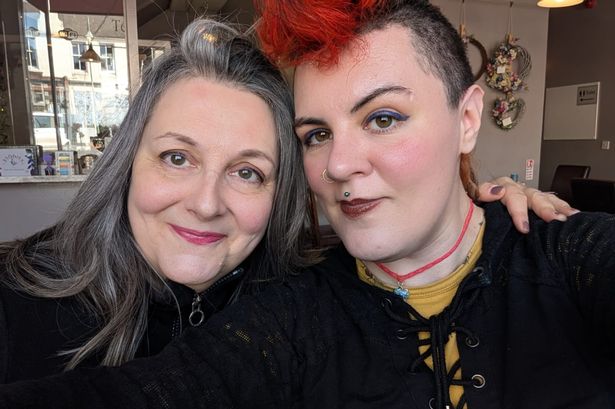Health
Scotland’s Children Face Lengthy Waits for Mental Health Support

Children in Scotland are facing alarming delays in accessing essential mental health services, with some waiting over 1,000 days for support. Data obtained through freedom of information requests to various NHS health boards reveals a troubling trend affecting the mental well-being of many young people across the country.
In NHS Highland, one patient reportedly waited a staggering 1,189 days for treatment through the Child and Adolescent Mental Health Services (CAMHS). Similar distressing figures emerged from NHS Ayrshire and Arran, NHS Tayside, and several other health boards, where children have encountered waiting periods exceeding one year, with reports of at least one case extending beyond two years. According to the data, a patient in NHS Tayside has been waiting 1,137 days to begin treatment.
Impact on Children’s Mental Health
Scottish Liberal Democrat leader Alex Cole-Hamilton emphasized the detrimental effects of these prolonged waits, stating that such delays could significantly harm children’s mental health. He criticized the Scottish National Party (SNP) for what he described as neglecting the mental health crisis over the past two decades. “Making children and young people wait years for help only worsens their mental health,” he said, adding that this situation is a “sure-fire way to add to their pain.”
Cole-Hamilton’s party proposes increasing the number of counsellors in schools and enhancing the availability of specialists in general practitioner (GP) surgeries and accident & emergency departments, aiming to address the escalating waiting times.
Catherine Simpson, a mother from Edinburgh, shared her personal experience of battling health services to secure a diagnosis for her autistic daughter, Nina. Simpson’s journey took eight years, during which she faced numerous challenges navigating educational and health systems. Her book, Hold Fast: Motherhood, My Autistic Daughter and Me, aims to provide support to parents experiencing similar struggles.
“It took three assessments over an eight-year period to get Nina a diagnosis,” Simpson recounted. “They were years of not really understanding her, blaming her for being her, and feeling like a failure.” Finally, when Nina turned ten, the family received the diagnosis that changed their perspective: Nina was autistic. This revelation allowed them to access vital information and support that had previously eluded them.
Simpson noted that while her family waited years for a diagnosis, many children today risk entering adulthood without the necessary support.
Legislative Challenges and Future Prospects
The situation is compounded by legislative setbacks, as seen with the proposal from Labour MSP Daniel Johnson. His bill aimed at enhancing resources for child mental health services and establishing waiting time guarantees was rejected earlier this year. Johnson highlighted the grim reality that children suspected of having conditions such as autism or attention-deficit hyperactivity disorder (ADHD) face almost insurmountable barriers to diagnosis and treatment.
“The reality is that, in most parts of the country, someone cannot now get an assessment for autism or ADHD,” Johnson stated during a recent parliamentary speech. He pointed out that waiting lists in some regions have reached disheartening lengths, with potential waits stretching to 14 years.
Despite these challenges, Maree Todd, Minister for Social Care and Mental Wellbeing, asserted that progress is being made. She confirmed that proposals aimed at improving mental health services for children are forthcoming. Meanwhile, Tom Arthur, Minister for Mental Wellbeing, stated that the national standard on waiting times for children accessing mental health services has been met twice consecutively. He acknowledged that while long waits are unacceptable, many young people are seen promptly, with a median wait of just five weeks.
The commitment to hiring 320 additional staff for CAMHS by 2026 has been exceeded, which Arthur believes contributes to the improvements being observed in service delivery. Nevertheless, he acknowledged that substantial work remains to ensure these improvements are consistent and sustainable across Scotland.
The ongoing situation reflects a critical need for urgent action and investment in mental health services for children, as the consequences of neglecting these issues can profoundly affect the lives of many young individuals.
-

 Entertainment2 months ago
Entertainment2 months agoAnn Ming Reflects on ITV’s ‘I Fought the Law’ Drama
-

 Entertainment3 months ago
Entertainment3 months agoKate Garraway Sells £2 Million Home Amid Financial Struggles
-

 Health2 months ago
Health2 months agoKatie Price Faces New Health Concerns After Cancer Symptoms Resurface
-

 Entertainment2 months ago
Entertainment2 months agoCoronation Street’s Carl Webster Faces Trouble with New Affairs
-

 Entertainment2 months ago
Entertainment2 months agoWhere is Tinder Swindler Simon Leviev? Latest Updates Revealed
-

 Entertainment3 months ago
Entertainment3 months agoKim Cattrall Posts Cryptic Message After HBO’s Sequel Cancellation
-

 Entertainment2 months ago
Entertainment2 months agoOlivia Attwood Opens Up About Fallout with Former Best Friend
-

 Entertainment2 months ago
Entertainment2 months agoMasterChef Faces Turmoil as Tom Kerridge Withdraws from Hosting Role
-

 Entertainment3 months ago
Entertainment3 months agoMarkiplier Addresses AI Controversy During Livestream Response
-

 Entertainment4 months ago
Entertainment4 months agoSpeculation Surrounds Home and Away as Cast Departures Mount
-

 World2 months ago
World2 months agoCole Palmer’s Mysterious Message to Kobbie Mainoo Sparks Speculation
-

 Entertainment2 months ago
Entertainment2 months agoITV’s I Fought the Law: Unraveling the True Story Behind the Drama





















